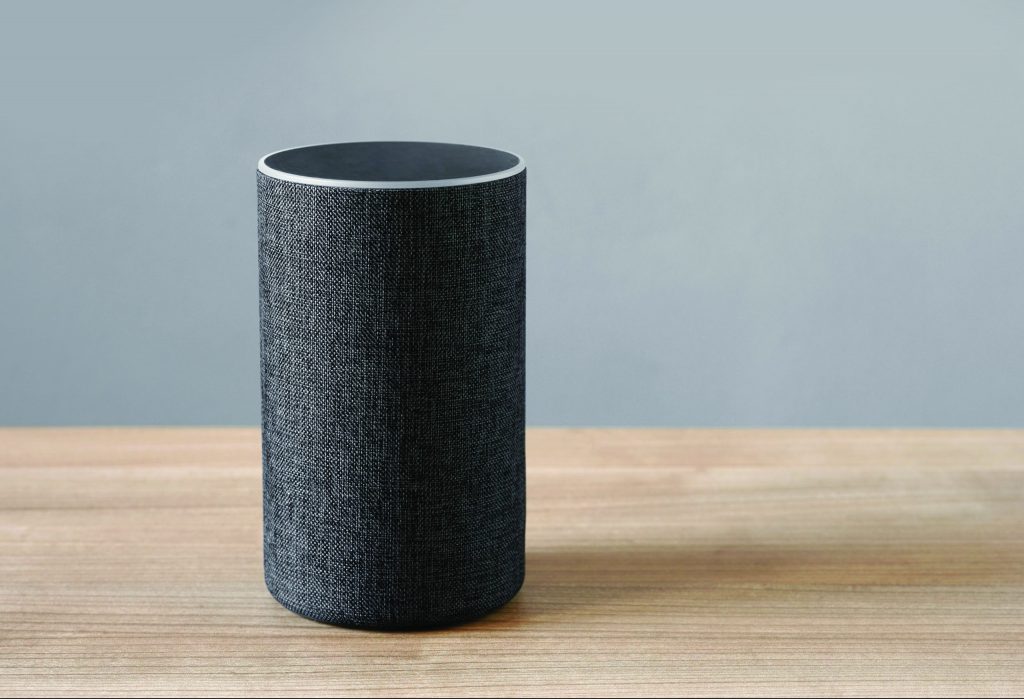Halachic Smarts About Smart Technology
Voice-Activated Technology
Among the marvels modern technology has introduced is the ability to activate electronics via voice command. This new phenomenon has bred a question that is increasingly being asked: does halachah permit performing melachah on Shabbat via voice commands? For example, is it permissible to check the temperature in a room via “OK, Google” (or any equivalent) or to turn on a light via voice command on Shabbat? Perhaps the prohibition is only to perform an action, as implied in the words, “Lo ta’aseh kol melachah—do not ‘do’ any work.”
Speaking as Action
The Gemara (Bava Metzia 90b) provides a precedent to resolve this issue. A person who muzzles his animal to prevent it from eating while working violates a Torah prohibition, “Lo tachsom shor b’disho—Do not muzzle an ox during its threshing” (Devarim 25:4), and will receive the punishment of malkot (lashes) for his transgression. The Gemara wonders about a case of preventing the animal from eating merely by using one’s voice [i.e., yelling at the animal when it is about to eat while threshing]:
If one muzzles through his voice … Rabbi Yochanan holds him liable [to lashes], while Reish Lakish exempts him. Rabbi Yochanan holds him liable because the movement of his mouth is considered an action, while Reish Lakish exempts him because his voice is not considered an action (Bava Metzia 90b).
At first glance, this statement of Rabbi Yochanan runs counter to the principle that for a lav she’ein bo ma’aseh, a prohibition without concrete action, one does not receive lashes. Speech is usually not considered a sufficient “action” to be liable for lashes; one therefore does not receive lashes for violating the nonetheless severe prohibition of lashon hara (Rambam, Hilchot Sanhedrin 18:1). Why, then, does Rabbi Yochanan maintain that muzzling through speech constitutes an action?
To answer this question, Tosafot (Bava Metzia 90b, s.v. Rabbi Yochanan) explain that there is a distinction between speech that creates a significant result (b’dibburei ka’avid ma’aseh) and speech that does not. They base this on the Gemara (Temurah 3b) that considers the prohibition of temurah (attempting to transfer sanctity from one korban to another) to be a prohibition that involves an “action.” Even though the act of temurah is accomplished through speech alone, it constitutes an action because it creates the result of endowing the second animal with the status of a korban. In the case of muzzling, the act of speaking also brings about a significant result: the animal does not eat.
Though “OK, Google” might indeed be “okay” for weekdays, it is assuredly not for Shabbat and yom tov.
In the context of hilchot Shabbat, the performance of melachah through voice command surely constitutes a significant result. Therefore the question of performing melachah via voice command should depend on this dispute. According to Rabbi Yochanan, voice command is considered an “activity” and hence should be prohibited on Shabbat. On the other hand, according to Reish Lakish, voice command is not considered an “activity” and thus would not be restricted on Shabbat. Which opinion do we follow?
The Rambam (Hilchot Sechirut 13:2) and Shulchan Aruch (Choshen Mishpat 338:3) accept the opinion of Rabbi Yochanan, as is usually the case in his disputes with Reish Lakish (see Yevamot 36a). Indeed, in the realm of Shabbat, Dayan Yitzchak Weisz (Teshuvot Minchat Yitzchak 2:17) states unequivocally, “Speech is considered an action regarding Shabbat if his speech triggers an action.” Similarly, Rabbi Moshe Feinstein (Teshuvot Iggerot Moshe, Yoreh Deah 1:173) states, “If there is a device in which one’s speech triggers an action, it is certainly prohibited on Shabbat and yom tov.”
Hey, Alexa!
Intentionally triggering a sensor is classified as a direct action. Halachah draws an equivalence between sensors and “one’s arrows” (girei didei, Sanhedrin 77b).
The Gemara (Sanhedrin 77a) sets forth a principle that has emerged as a central issue regarding technology and Shabbat:
Rav Papa said: One who ties up another person and releases a torrent of water (that had been dammed) upon him is liable [for murder] because the water is considered like his arrows. But this is only if the water hit the victim through an “initial force” (koach rishon); if it hit him only through a “second force” (koach sheini), it is considered indirect (grama).
Rabbi Chaim Ozer Grodzinsky (Teshuvot Achiezer 3:60) propounds that completing an electric circuit is perfectly analogous to the case of releasing a torrent of water. One who completes the circuit allows the electrons to flow and create a glowing filament. And since the effect happens immediately, it is defined as koach rishon.
Rabbi Shlomo Zalman Auerbach (Teshuvot Minchat Shlomo 1:11) and other later posekim concurred with this reasoning.
Similarly, one who deliberately triggers an electrical appliance with a voice command is also viewed as acting directly. “Hey, Alexa” or “OK, Google” is the equivalent of one’s arrows, as per the Gemara’s example above. Therefore, halachah regards voice commands as included in the prohibition of “Lo ta’aseh kol melachah,” and though “OK, Google” might indeed be “okay” for weekdays, it is assuredly not for Shabbat and yom tov.
Brain-Controlled Technology
In an editor’s note in Techumin (36:151, fn 7), the journal of the Zomet Institute, Rabbi Yisrael Rosen, who served as the director of the institute, cites a conversation he had with Rabbi Shlomo Zalman Auerbach regarding brain-controlled technology. Rabbi Rosen reports that Rabbi Shlomo Zalman Auerbach quoted Rabbi Meir Dan Plotzky’s Kli Chemdah to Parashat Beshalach. Rabbi Plotzky grappled with this question concerning the Torah’s command to prepare our food before Shabbat (Shemot 16:23); he asks why the Torah issues this command regarding the manna, in light of Chazal’s teaching (Mechilta D’Rabbi Yishmael, Beshalach, no. 4) that we cooked and baked the manna by thought! Rabbi Plotzky answers that even work accomplished by thinking is forbidden on Shabbat if this is the normal manner of performing that activity. Thus, deliberately activating an electrical device through thought would be considered a direct action and is forbidden on Shabbat.
Sensors on Shabbat
Even if it is one’s heat that triggers an action, if he intends to trigger an action by his heat, then his heat is considered the equivalent of his “arrows” as much as his sounds or thoughts are.
In addition, even if one intends for his presence in a room to trigger a response, it is considered his action. Rabbi Auerbach’s insight regarding brain-controlled technology demonstrates halachic responsibility for any direct action that one deliberately causes. This assertion is especially the case if one installed a system where one’s presence triggers artificial intelligence to respond.
If used smartly—with the proper advance setup—smart technology can enhance our Shabbat.
Nowadays, many hotel rooms are equipped with motion-sensor lights. When spending Shabbat in a hotel such as this, Rabbi Asher Weiss (Teshuvot Minchat Asher 1:32) notes that the common practice is to ask a non-Jew to enter the room and activate the light. Remaining in the room afterward is permitted, even though the sensors detect his presence and maintain the lights, because this is a situation of maintaining the status quo, which provides much more room to be lenient. Rabbi Yisrael Rosen (Techumin 36:158) also notes that one may leave the room in case of need even though his absence triggers the sensors to close the room’s lights, since one’s absence cannot be defined as an action or a melachah, and one also does not intend to close the lights.
Similarly, if entering the room will trigger the air conditioner or the heat to turn on, Rabbi Hershel Schachter and Rabbi Mordechai Willig both say that it is forbidden to enter the room on Shabbat. The only recourse in such a situation is asking a non-Jew to enter the room first. This requirement can pose an acute problem in an Israeli hotel where a non-Jew might not be available to assist.
Smart Homes
In light of this discussion, one must disable any smart home devices before Shabbat. If one’s motion, heat or even presence directly triggers the sensor to heat, cool or light a room, it is considered as if we directly cause the action. This point applies to homeowners as well as to any guests, since all stand to benefit from the activities they might trigger through the sensors.
 There are already several companies established to help one easily and automatically disable one’s smart technology for Shabbat. In addition, these companies help set smart technology to make Shabbat preparation (including setting ovens and refrigerators to Shabbat mode) much more efficient. Finally, they can set up smart technology as advanced timers for situations where timers are permitted on Shabbat.
There are already several companies established to help one easily and automatically disable one’s smart technology for Shabbat. In addition, these companies help set smart technology to make Shabbat preparation (including setting ovens and refrigerators to Shabbat mode) much more efficient. Finally, they can set up smart technology as advanced timers for situations where timers are permitted on Shabbat.
If used smartly—with the proper advance setup—smart technology can enhance our Shabbat without detracting from it. Needless to say, rabbinic consultation is necessary to ensure that all is arranged in full compliance with halachah.
Rabbi Chaim Jachter is a rebbi at Torah Academy of Bergen County in Teaneck, New Jersey, as well as the rabbi at Congregation Shaarei Orah, the Sephardic Congregation of Teaneck. He serves as a dayan at the Beth Din of Elizabeth and is the author of numerous works on halachah, Tanach and hashkafah, including The Power of Shabbos: Shabbat and Electricity in the 21st Century (2022).
More in this Section:
What Artificial Intelligence Teaches Us about What it Means to be Human by Rabbi Netanel Wiederblank
AI Meets Halachah: Jewish Action speaks with Rabbi Dr. Aaron Glatt

